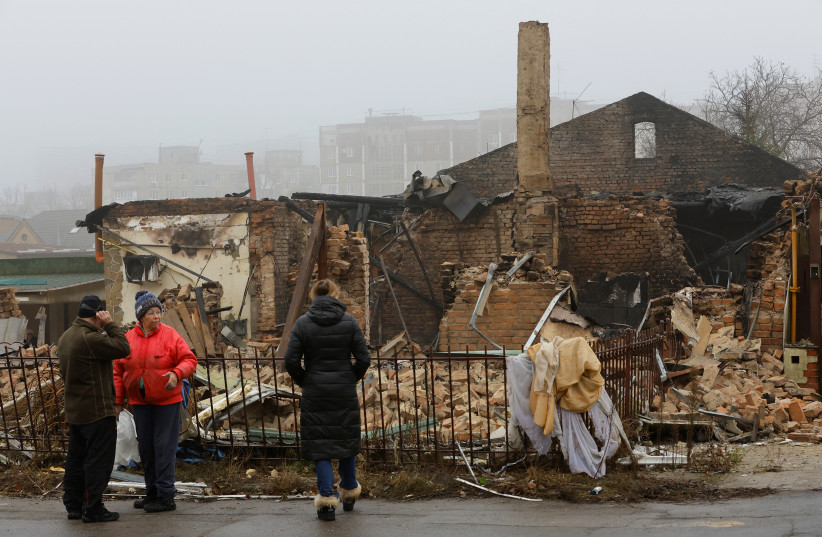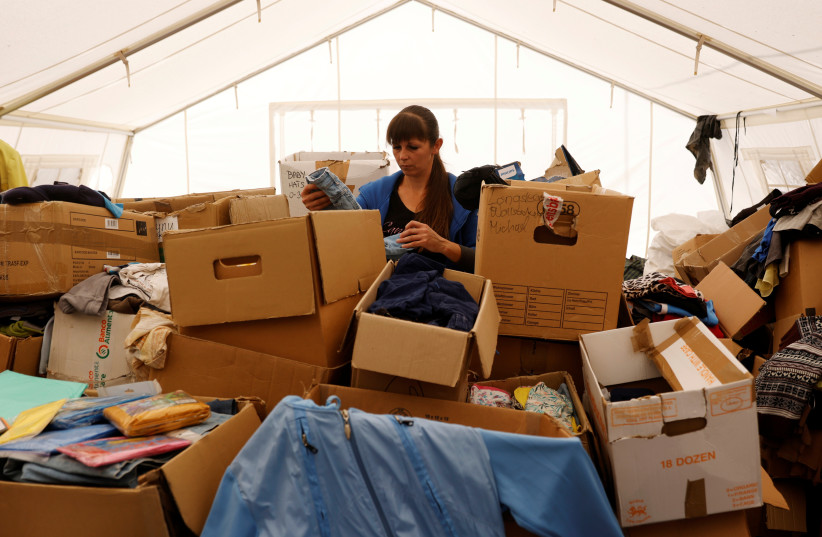The Kremlin said on Wednesday that any Abrams battle tanks supplied to Ukraine by the United States would "burn," dismissing the expected delivery as an expensive folly.
US officials told Reuters on Tuesday that Washington was poised to send dozens of its M1 Abrams battle tanks to Ukraine, reversing its previous position. The report comes after Germany looked set to send its Leopard 2 tanks to Ukraine after initially resisting the request.
Speaking at a daily briefing with reporters, Kremlin spokesman Dmitry Peskov said that while the Abrams shipments were not confirmed, they would be a waste of money.
"I am certain that many experts understand the absurdity of this idea. The plan is disastrous in terms of technology," he said. "But above all, it overestimates the potential it will add to the Ukrainian army. These tanks burn just like all the others," he added.
Kyiv has for months asked for Western tanks that it says it desperately needs to give its forces the firepower and mobility to break through Russian defensive lines and recapture occupied territory in the east and south.

Russia reports Wagner Group advancing in Bakhmut
The Russian-installed governor of Ukraine's Donetsk region said on Wednesday that units of the Wagner contract militia were advancing in the town of Bakhmut, with fighting taking place in previously Ukrainian-held neighborhoods.
Reuters could not independently confirm the battlefield claim by Denis Pushilin, the Russian-imposed head of the region, whose annexation was claimed by Moscow last September.
"Units, in particular Wagner, are advancing in Artyomovsk itself," TASS news agency quoted him as saying, using the Russian name for the town.
"Fighting is already taking place in the outskirts and in neighborhoods that until very recently were held by the enemy," he said.
The area around Bakhmut has seen some of the most brutal fightings of the 11-month war, so its fate has high symbolic importance for both Russia and Ukraine, even though Western military analysts say the town, which had a pre-war population of around 70,000, has little strategic significance.
Russia said earlier this month it had captured Soledar, to the northeast, and Klishchiivka to the south, in advances for which Yevgeny Prigozhin's Wagner group claimed credit.
RIA news agency quoted Pushilin as saying that taking Soledar had made it possible to block Ukrainian supply routes and control some areas from which Ukrainian forces had been launching "retaliatory action."
Ukrainian Red Cross preparing for more aid
The Ukrainian Red Cross is preparing for more aid to the civil population in the country's war-plagued zones in light of a possible new Russian offensive, the organization's general secretary said.
"Everyone expects some intensification of the fighting," Maksym Dotsenko told Reuters during a visit to the German capital Berlin.
Since Russian forces invaded Ukraine in February last year, around 11 million people have fled their homes, with 7 million internally displaced and four million refugees in neighboring states.
The Red Cross, Ukraine's biggest civil organization, has no access to Russian-occupied territories in eastern and southern Ukraine, but is operating in the rest of the country.
The organization has increased its staff to 1,500 employees from 400 before the war and more than doubled the number of volunteer workers, Dotsenko said.
Five of its volunteers have died in the conflict, Dotsenko reported, one of them during Russian shelling of the city of Kherson in the south.
"I cannot say that all the needs are covered. But I can say that in general the situation is under control," Dotsenko said.

The Red Cross, he said, is ready to provide generators to hospitals and other places in case of more Russian attacks on critical infrastructure.
"Of course, we need more financial support," he added, but there was no need for donations of clothing.
Front lines in the war, which stretch more than 1,000 kilometers (620 miles) through eastern and southern Ukraine, have been largely frozen in place for two months despite heavy losses on both sides, but both Russia and Ukraine are widely believed to be planning new offensives.
